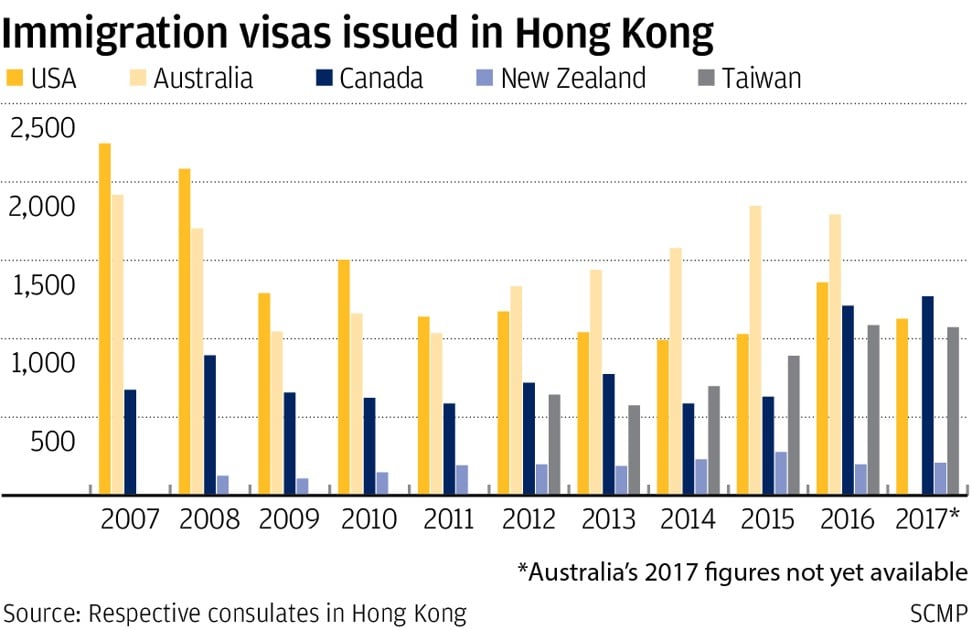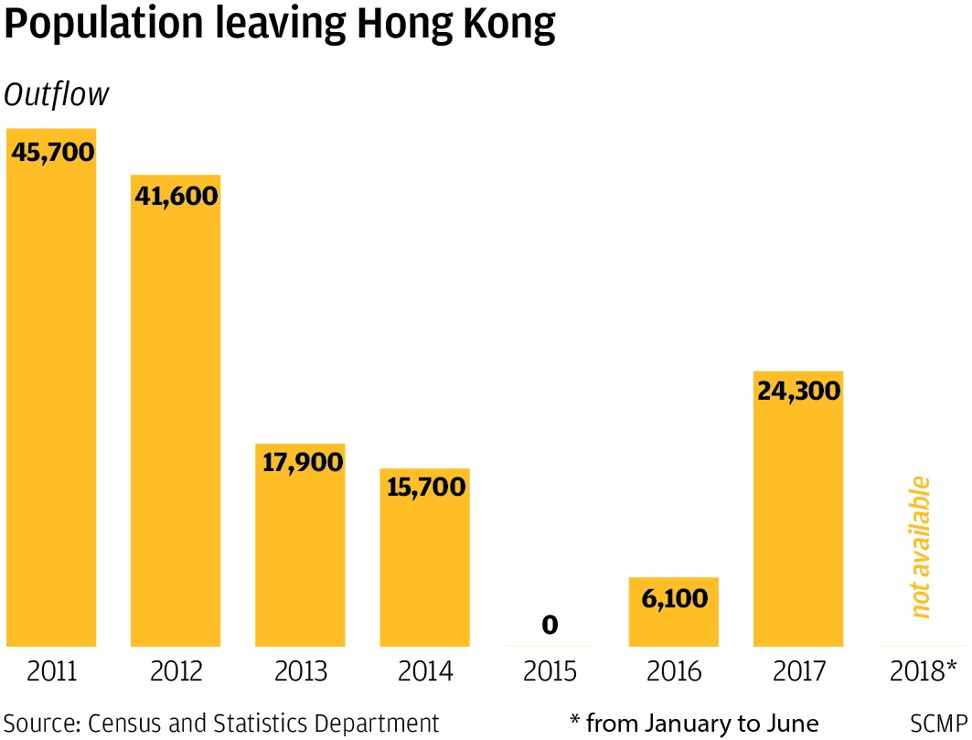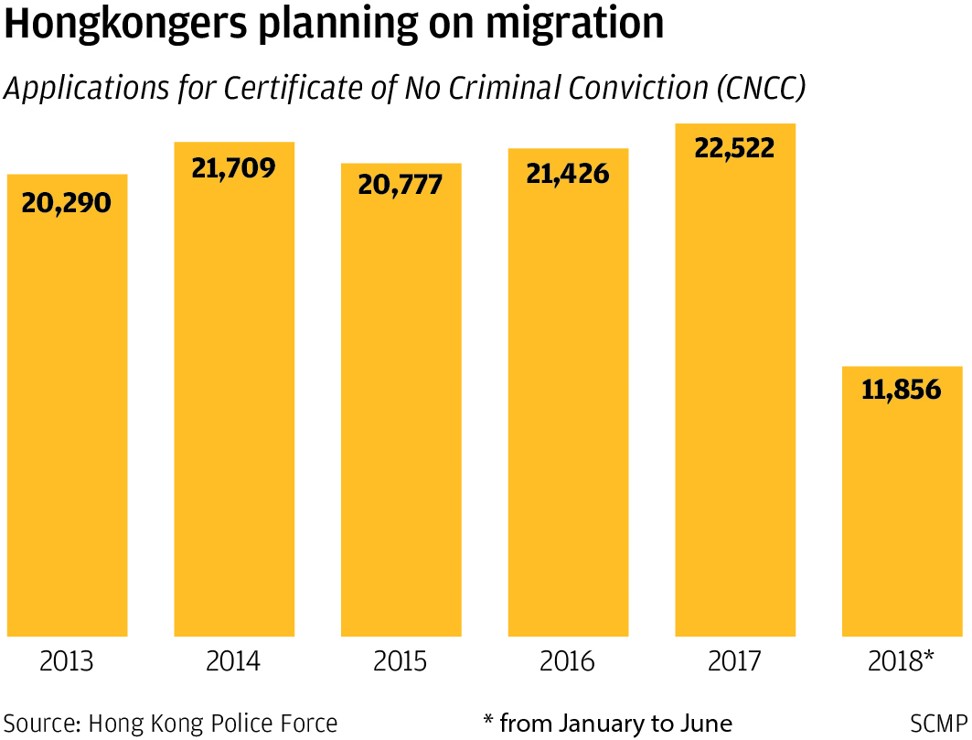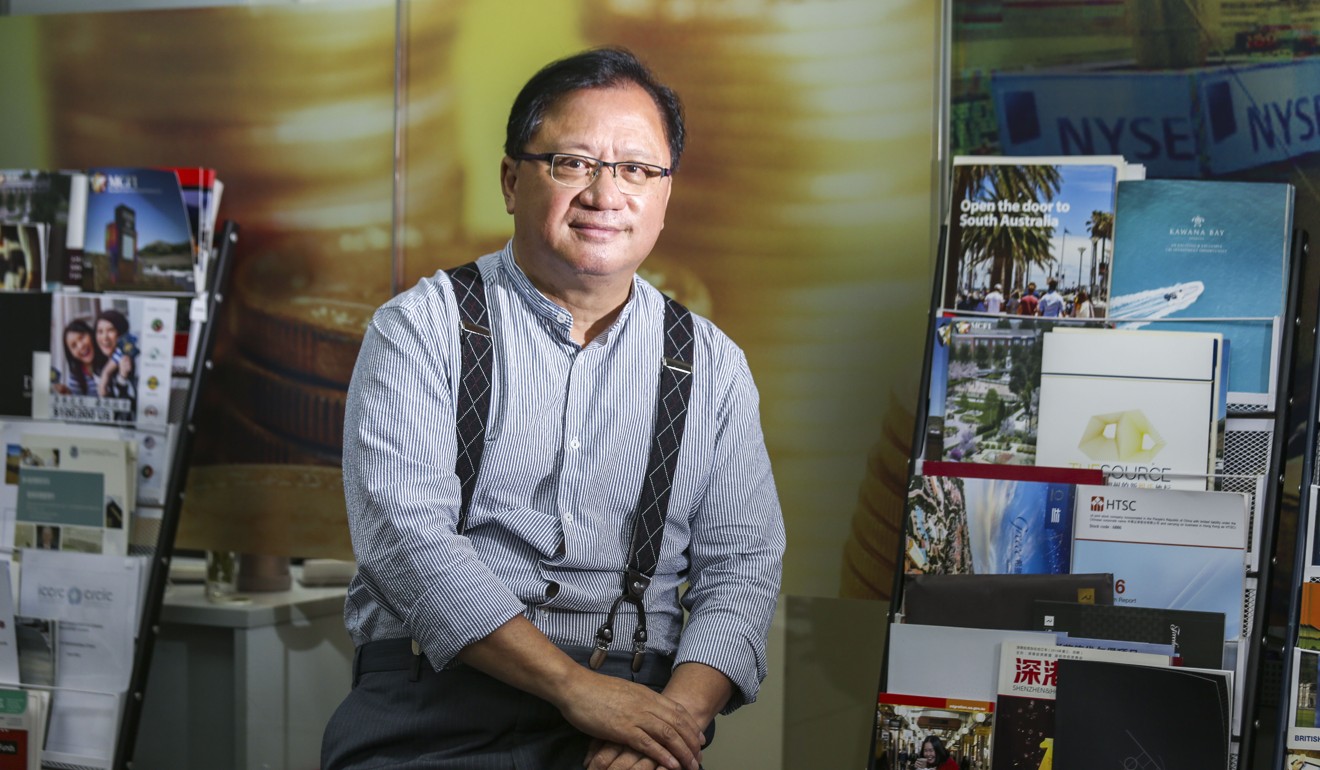
Young professionals are leaving Hong Kong in droves in search of better lives where family, friends, and fun comes first
City’s 20-somethings are turning their backs on what parents class as success to build lives that don’t revolve around the avaricious accumulation of wealth
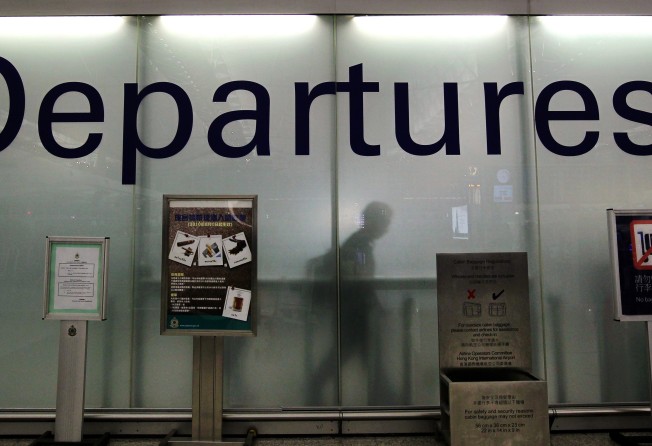
Hongkonger Lau Yuet-tan, 26, chose Iceland, when she decided to emigrate two years ago.
She moved from the crowded streets, packed trains and tiny flats of city life to the Nordic island nation of glaciers, dramatic coastal landscapes and a population of a little more than 330,000.
“The whole environment here is almost opposite to that in Hong Kong,” says Lau, now 26 and working as a blogger in a travel company.
“Life in Iceland is certainly not as luxurious and eventful as it could be at home. And sometimes I do feel bored, but I’ve also learned to enjoy the simplicity here. In Iceland, no one will force you to do extra work, and my boss gives me freedom to practise different ways of doing my job.”

The number of locals leaving for countries hit a five-year high of about 24,300 last year, according to government data. The upwards trend is continuing this year, with one migration consultancy saying it has seen a 15 per cent increase in business compared with last year.
Lau is part of a trend of younger people choosing to move to places that were not popular destinations before.
A small but growing number of young adults are moving to Iceland, New Zealand and Taiwan. The number for Iceland is not available, but Lau estimates there are about a dozen Hongkongers living there. For New Zealand, the number of the city’s residents moving there saw a 67 per cent increase in 10 years, while Taiwan saw a 50 per cent increase in five years.
Significantly, the United States is no longer the top choice for emigrants. The number of applications dropped by half compared with 10 years ago. Canada and Australia remain the most popular countries for Hongkongers to move to.
Experts cite a mix of reasons people are leaving: the stressful lifestyle, unaffordable housing, high cost of living, lack of political freedom, and a rigid education system.
Aside from the rising number leaving, Hong Kong is seeing fewer arrivals from the mainland too.
According to the latest government data, the number of Chinese migrants entering Hong Kong via a one-way permit registered the biggest drop in a decade with 41,000 mainlanders arriving in the past 12 months, a decrease of 14,700 compared with mid-2016 to mid-2017.
Experts warn that if this trend of more locals leaving and fewer migrants arriving continues, the current manpower shortage across different sectors is likely to worsen and have an effect on Hong Kong’s development, amid an ageing population.
Why do they leave?
What is noticeable about those leaving Hong Kong is that professionals are not seeking better prospects for career and salary, but a more leisurely lifestyle that involves shorter office hours and more time for their family.
Vanessa Choi Shan-shan, 45, and her husband, gave up their highly-paid jobs for an uncertain future when they left for Australia with their young son seven years ago. She was an officer working in the business sector, while he was a graphic designer.
When they settled in Sydney, Choi took a job at a call centre while her husband became a full-time stay-at-home father. They do not regret the sacrifices they made for their son, who is now 11.
“The belief in Hong Kong that you’re only successful if you make a lot of money is overrated. This is something I want to steer my child away from,” Choi says.
The belief in Hong Kong that you’re only successful if you make a lot of money is overrated
She does not want her son to compete for a place at a mainstream school, go to university, get a well-paid job, just to earn enough money to buy a flat.
Last year Choi started her own marketing business, while her husband works as a part-time delivery man.
“That’s the beauty of life here, no one will judge you by your job or family roles,” Choi says.
John Hu Hong-bong, the director of John Hu Migration Consulting, told the Post the people who use his company’s services share Choi’s view of life in Hong Kong.
“Most of them have lost hope for the city’s future, and they’re seeking to leave this place because they are not seeing any light at the end of the tunnel,” Hu says, referring to the high property prices, limited personal space, poor quality of life, and rigid education.
“It doesn’t matter to them if they won’t make as much money, or will not be able to climb up the [social] ladder at all,” Hu says.
When blogger Lau arrived in Iceland, she was amazed by the totally different approach to work and lifestyle there compared to her homeland.
She has a flexible working schedule, spending just 7.5 hours in the office each day, and has time to explore the mountains and waterfalls close to her home.
In Hong Kong, her after-work hours were spent shopping and hanging out with friends for karaoke.
As an unmarried woman, Lau adds, she feels welcomed in a society that “values gender equity” and where a woman is not judged if she is not wearing a bra, or if she is breastfeeding her baby in public.
She has found Icelanders to be more friendly to strangers in daily life, whereas Hongkongers tend to be more wary of others.
Now a resident with a working permit, Lau hopes to seek permanent residency in two years’ time.
The emigration trend is likely to continue. A Chinese University survey in September 2016 found that nearly two in five Hongkongers would leave the city if given the chance.
Where did they go?
Last year, some 24,300 locals left Hong Kong – a five-year high, according to data from the Census and Statistics Department. Before that, annual departures hovered between zero to below 20,000 between 2013 to 2016.
Such a trend is further proved by the number of locals who have applied to police for a certificate showing they have no criminal conviction – a document required for obtaining immigration visas, with 2017 also reaching a four-year high of 22,522, although not everyone who gets this document will leave.
There are statistics for the number admitted to some countries.
The US no longer tops the list as the favourite destination for Hongkongers, and the number of applications for permanent residents saw a significant drop of about 50 per cent from 2,246 in 2007 to 1,128 in 2017, according to data provided by the consulate.
Last year, Canada took in 1,270 permanent residents from Hong Kong, an 88 per cent increase from 674 in 2007.
Australia takes in 1,000 to 2,000 Hongkongers each year. There are no figures for Britain, which is believed to be one of the most common destinations.
Of the destinations more popular among the young, New Zealand took in 209 people from Hong Kong last year, a 67 per cent increase from 125 in 2008.
Taiwan also saw a rising trend, with 1,074 local applications being granted for permanent residency last year, up by almost 50 per cent from just 575 in 2013.
Peter Chan Pak-yuen, 26, is among a group of younger people who love Taiwan for its cultural life.
He decided to move to Taipei in 2016, giving up his computer programming job in Hong Kong to become a bartender.
His monthly income is about HK$11,000, much less than the desk job salary of about HK$20,000.
“I do not want to make big money,” Chan says. “In Taiwan, we can enjoy a very simple life by earning much less money, at the same time there are plenty of cultural activities to enjoy.”
Chan says that when he has saved enough money, he wants to run a small cafe – a dream he feels would not be possible in Hong Kong, given the high rents and competitive environment.

A brain drain
Dr Chung Kim-wah, assistant professor at Polytechnic University’s department of applied social sciences, has observed the trend of younger people seeking a less stressful lifestyle elsewhere, even if they do not make as much money as in Hong Kong.
“Youngsters have come to me expressing how they would rather make less money elsewhere than spend more than half of their paychecks on a mortgage,” Chung says. “They say it’s not worth it.”
Although the official data did not record the age group of those who emigrate, Chung says those leaving Hong Kong in recent years appear to be much younger than in the past, and the gap in the workforce will be felt in the next five to 10 years.
It is worrying too, that Hong Kong is losing young professionals at a time when the city is facing challenges in managing its ageing population.
He warned the impact might be worse than the mass migration before the handover of Hong Kong to China in 1997.
“Previously, emigration was mainly an option for those in the middle class, wanting to move their whole family to a foreign country. But now, young people fresh out of college are the ones seeking to migrate,” he points out.
Now, young people fresh out of college are the ones seeking to migrate
Chung feels the impact of the ageing society requires attention, as it means the city is facing a declining labour force but rising elderly dependency ratio.
The number of those aged 65 and over will more than double in the coming 20 years, from 16.6 per cent of the total population in 2016, to more than a million, or 31.1 per cent in 2036, according to a Census and Statistics Department’s report. By 2066, the city will see the number of elderly reach 2.59 million, or 36.6 per cent of the population.
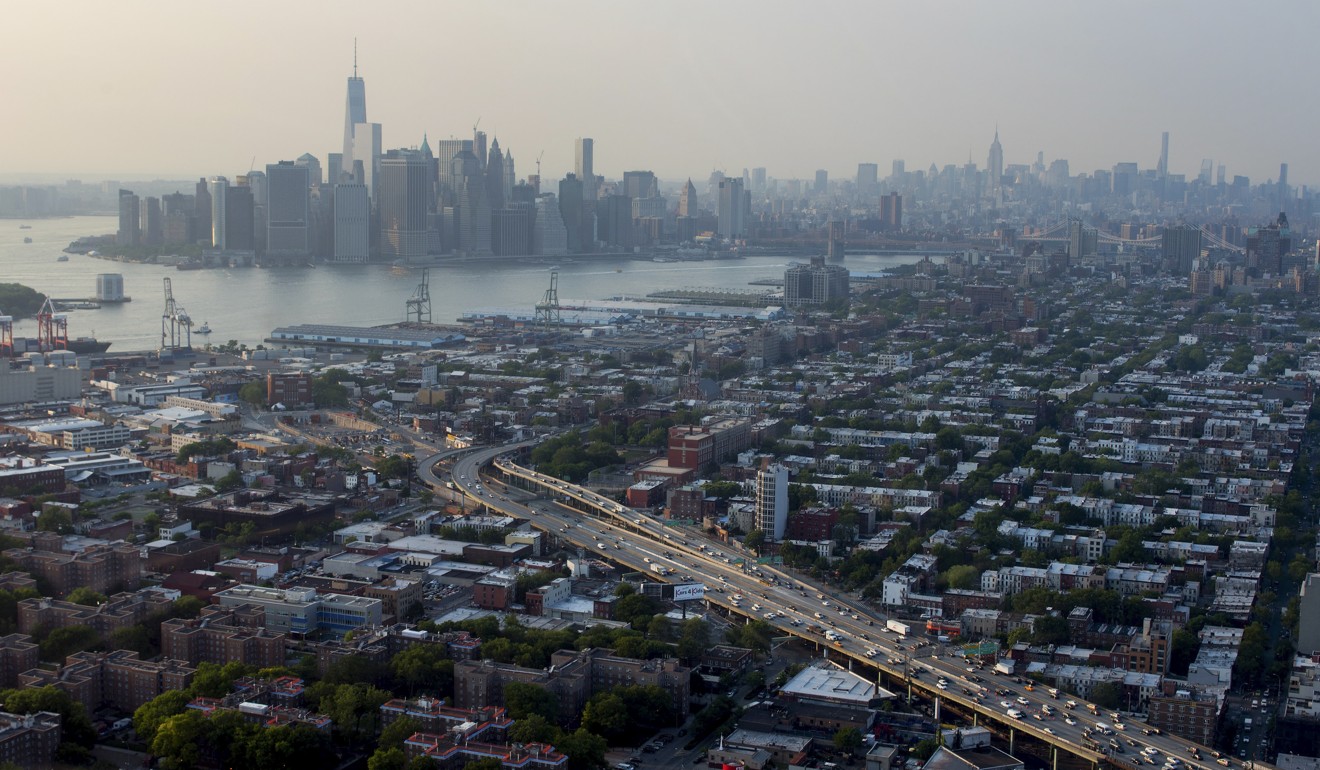
This is in addition to the widespread shortage of labour in sectors such as health care, construction, catering and other areas. In particular, there is a chronic lack of about 300 doctors in public hospitals, while homes for the elderly are short of carers, and an extra 15,000 construction workers are expected to be required over the next four years.
In response, Chief Executive Carrie Lam Cheng Yuet-ngor has promised to issue a “talent list” by the middle of this year to attract foreign labour and ease the city’s manpower shortage.
Last year, she vowed to look at the deficiency in each sector, and see whether technology and innovation could be a solution.
There is no time for space and fun in Hong Kong, and that’s something we need to look into
But, sociologist Chung says the core issue is that young people are being pushed away by the high cost of living, and what they consider an unsatisfactory quality of life.
To make the city competitive it is important for Hong Kong to retain its local talent, says Professor Paul Yip Siu-fai, of the University of Hong Kong’s department of social work and social administration.
“It’s important for the city to provide a good lifestyle, stressing an approach that can promote good health, happiness, and people’s well being,” Yip says.
“There is no time and space for fun in Hong Kong, and that’s something we need to look into, it can’t always be just work and work alone.”
Both Chung and Yip urge the administration to put more effort into subsidised housing, making owning a home easier for young professionals.
There is a need to address high living costs and the neglected sense of fun, along with other things, such as improving education services and social benefits, Yip adds.
Additional reporting by David Vetter and Mandy Zheng
